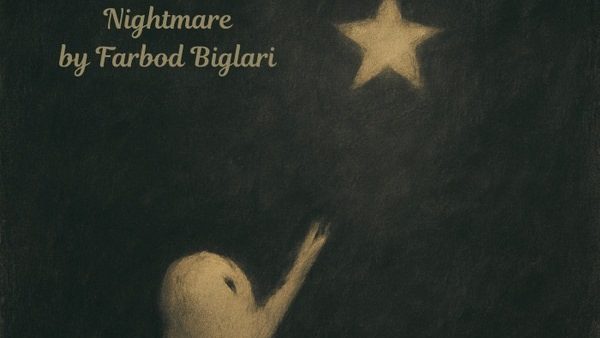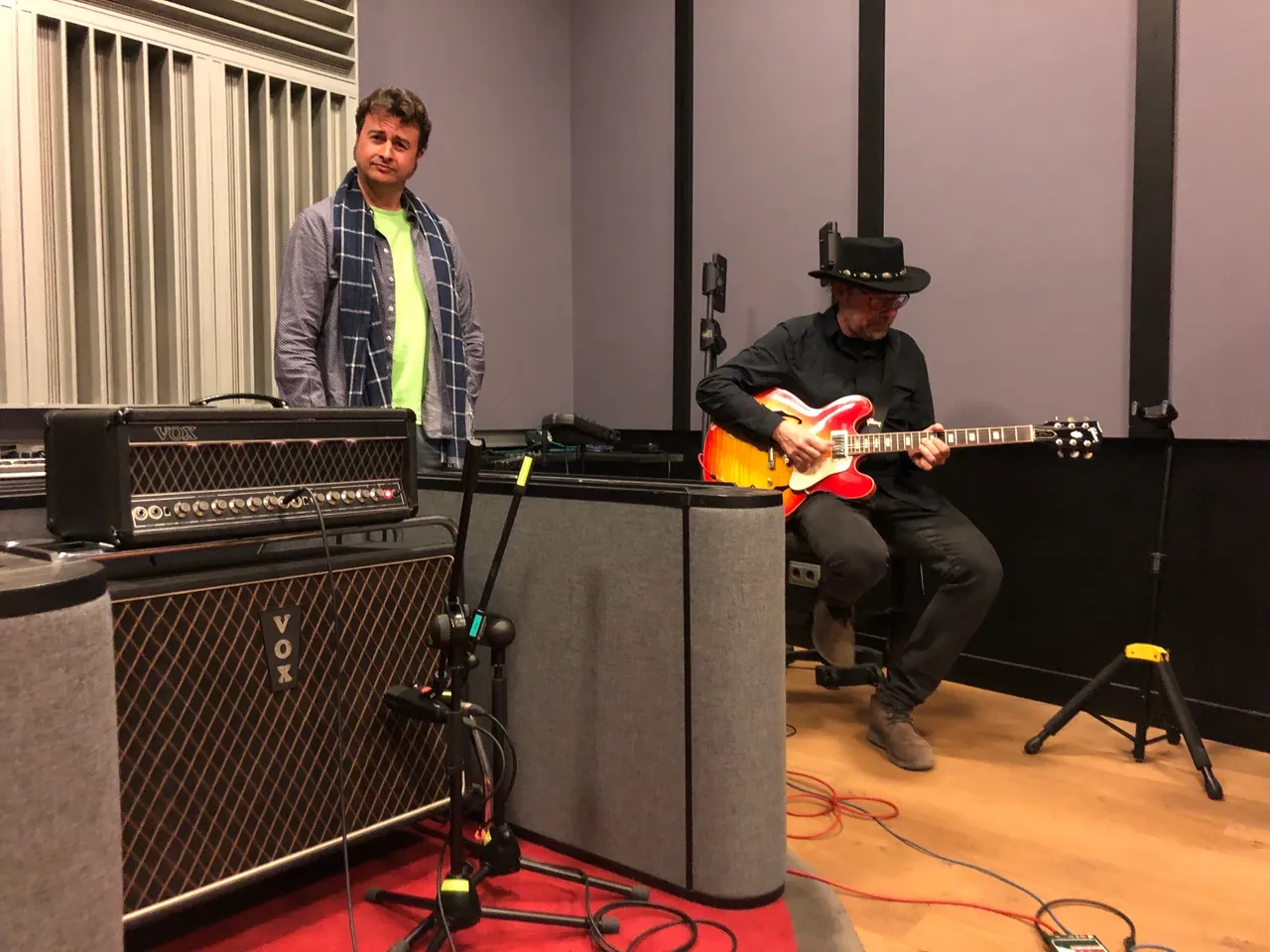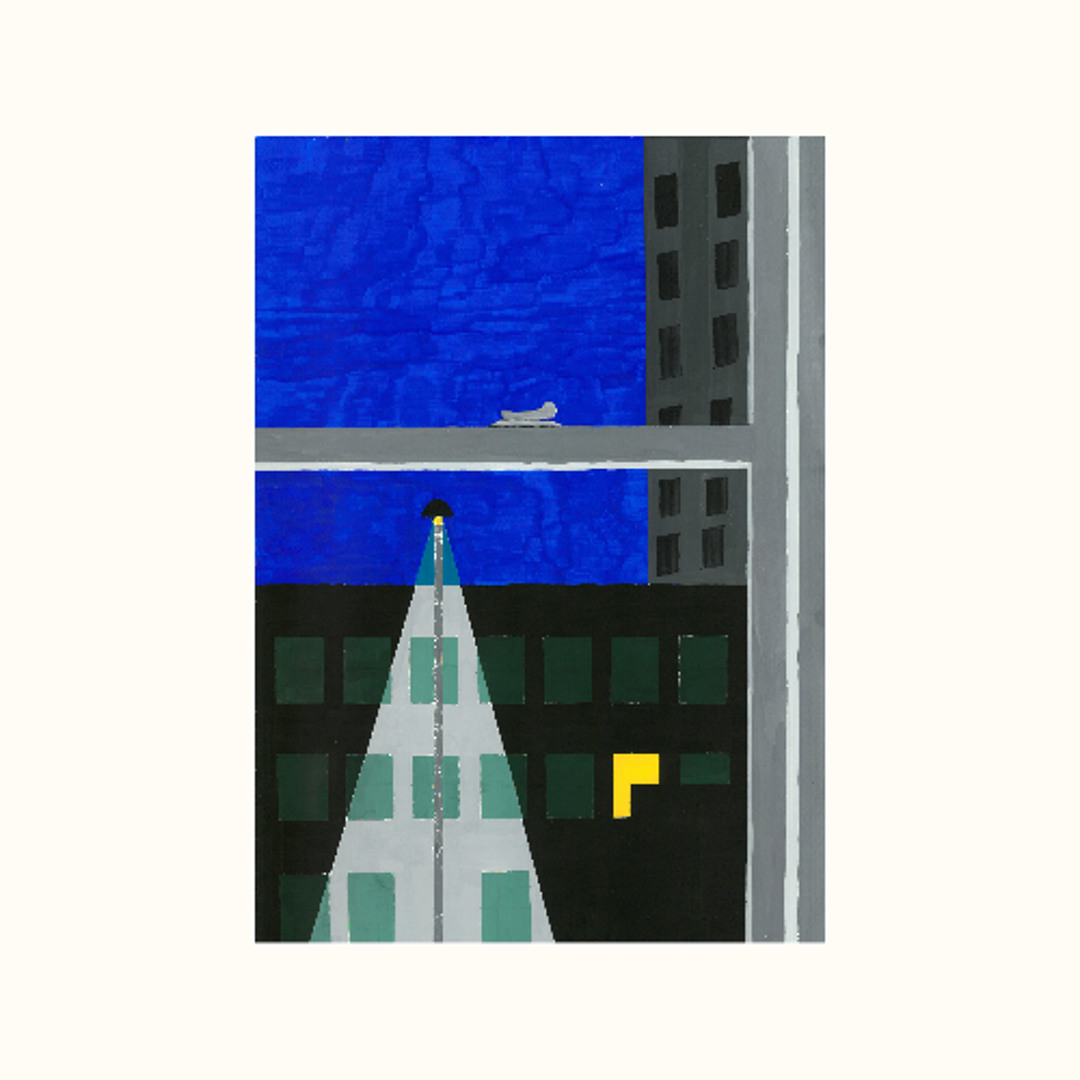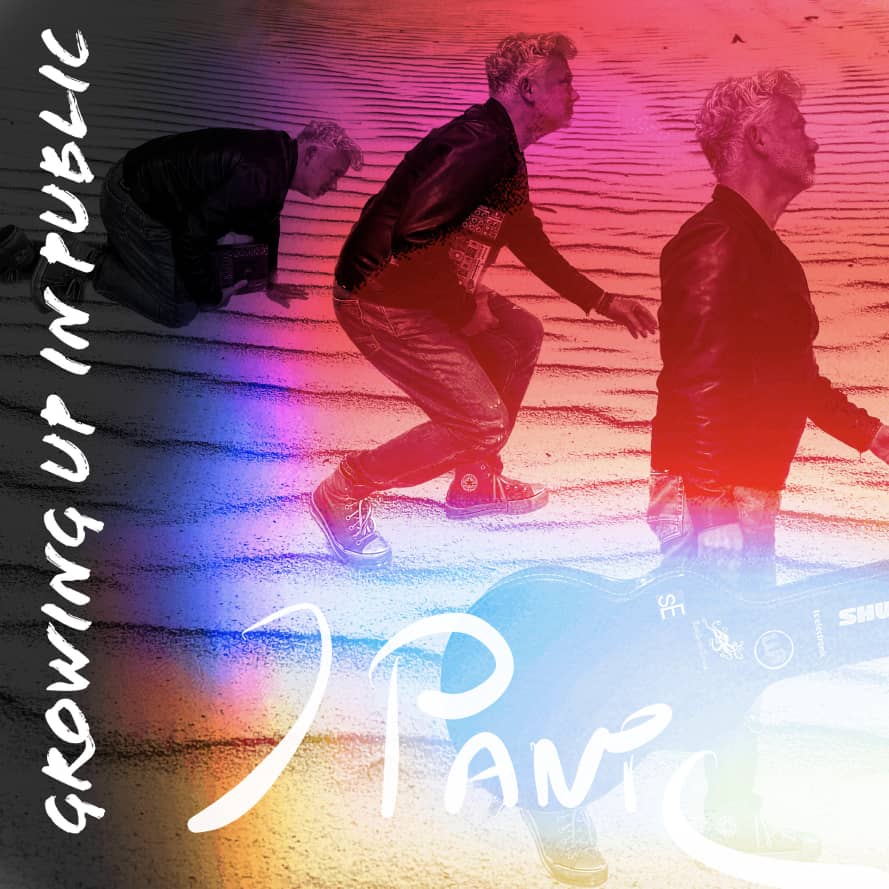Farbod Biglari is an Iranian-born musician, composer, and singer-songwriter who currently resides in Vancouver, Canada. With a creative foundation shaped by his experiences in cinema and theatre, Farbod seamlessly blends the expressive nuance of Persian lyricism with Western musical traditions. His work is characterized by an introspective atmosphere that marries poetic narrative, experimental textures, and jazz influences, all delivered with an unwavering emotional sincerity.
Currently immersed in academic training in jazz, Farbod enhances his artistic voice with a deep sense of improvisation and personal interpretation. This scholarly approach not only sharpens his technique but also broadens his creative scope. His performances, often featuring just his voice and guitar, such as those held at Vancouver Community College, highlight his ability to turn each piece into an intimate emotional expression. For Farbod, music is not simply a form of performance; it is a vessel through which lived experiences, memories, and emotions are released, offering solace and movement to both artist and listener.
His latest project, the album Nightmare, titled Kabous in Persian, was released on May 13th, 2025. This body of work stands as a powerful reflection of Farbod’s introspective artistry. Performed entirely in Persian, the album dives into themes of vulnerability, inner conflict, and the elusive nature of memory. What sets this release apart is its stark rawness. Created using minimal gear in a simple home studio and composed entirely by Farbod, the album deliberately embraces imperfections. Sounds of breath, natural reverb, and ambient noise are woven into the sonic fabric, enriching the cinematic and emotional quality of the album rather than diminishing it.
Thematically, Nightmare delves deep into love, heartbreak, and unresolved emotions. Farbod does not seek to present neatly wrapped narratives or closure. Instead, he invites listeners into his internal landscape, a space haunted by remembrance and shaped by emotional longing. These are not tracks meant for casual background play; they are sonic meditations designed to be absorbed slowly and felt deeply. The minimalistic production, built on first-take recordings and delicate arrangements, offers a kind of vulnerability that is both raw and resonant. Post-production efforts in Vancouver served not to perfect the sound, but to enhance its authenticity, treating each track like a fading recollection, unfinished, shifting, and imbued with emotional residue.
Track Breakdown
My Past
The opening track, “My Past,” sets the emotional tone for the entire album with its delicate and melancholic introduction. The song begins subtly, marked by the gentle tapping of drumsticks, offering a quiet invitation into a world of tender reflection. A softly plucked acoustic guitar provides the song’s backbone, while Farbod’s voice emerges, carrying a fragile emotional resonance. The lyrics, though sung in Persian, carry a universal poignancy, evoking nostalgia and a sense of quietly unraveling memory. The piece feels like an excavation of deeply buried emotional moments, brought to light with careful intention.
Farbod’s vocal performance on this track is marked by emotional subtlety rather than overt expression. His voice remains soft and vulnerable, floating above the instrumentation with a confessional quality. He does not strive for technical prowess, instead allowing the emotional imperfections of his voice to express the essence of the song. The pauses between lines are filled with as much meaning as the words themselves, giving the track a profound stillness. “My Past” is an understated yet powerful introduction, relying on restraint and atmosphere to draw listeners into the emotional world of the album.
Café
The third track, “Café,” emerges like a hushed thought in the midst of quiet contemplation. Built upon a sparse yet melodic framework, the song captures the serene isolation of sitting alone in a dimly lit café. The arrangement is subtle, light percussion mimics the soft rhythm of a heartbeat, while ambient textures create an atmosphere suspended in time. Rather than moving forward with urgency, the music lingers, inviting listeners into a space of internal dialogue and emotional stillness.
In “Café,” Farbod’s vocals are marked by a gentle intimacy, as though he is whispering directly to a listener sitting across the room. His delivery is delicate, filled with a sense of unspoken emotions and quiet reflection. Each lyric feels like a thought left unsaid, a memory that hovers just below the surface. Even without understanding the language, listeners can sense the emotional depth behind every phrase. The track serves as a moment of quiet observation within the album, a still frame in which the world continues on unnoticed while the inner self reflects and feels. Through its minimalist beauty, “Café” becomes one of the most touching pieces on Nightmare, speaking volumes through silence and suggestion.
Leap Year
The sixth track, “Leap Year,” stands out as one of the most emotionally weighty moments of the album. Centered around a somber and contemplative piano motif, the track unfolds slowly, each note heavy with emotional burden. The piano doesn’t just set the tone; it conveys a sense of despair and inevitability, as if each chord carries the gravity of unspoken sorrow. The arrangement is intentionally sparse, allowing ample space for each note to resonate and each silence to speak.
Farbod’s vocal performance here is haunting and restrained. His voice, trembling with emotion, seems caught between the tension of holding on and the pain of release. The ambient background swells and recedes, complementing the minimal instrumentation without overpowering it. The song stretches time itself, drawing the listener into a space where grief is not healed by its passage but simply endures. The idea of a leap year becomes a metaphor for emotional suspension, an in-between place where time passes but feelings remain untouched. With “Leap Year,” Farbod offers a deeply poetic meditation on loss, time, and the emotional landscapes we struggle to navigate.
Nightmare (Instrumental)
The final track of the album, “Nightmare (Instrumental),” closes the project with a soft, voiceless meditation that encapsulates the emotional arc of the entire record. In the absence of lyrics, the piece relies solely on atmospheric sound and spatial dynamics to convey its message. Layers of ambient tones and gentle melodic fragments guide the listener through a calm release, as though the music itself is gently exhaling after an intense emotional passage. The composition unfolds at an unhurried pace, breathing organically and mirroring the quiet rhythm of reflection and emotional closure.
In contrast to the vocal-centered songs that precede it, “Nightmare (Instrumental)” communicates through silence and suggestion. Its sounds emerge and fade like fleeting memories, never fully defined but rich in emotional resonance. Instead of building to a climactic conclusion, the track offers a gentle descent, a resting place where the listener can dwell in the echoes of all that has been felt. It is a piece grounded in acceptance rather than resolution. As the album’s final gesture, it captures the spirit of the entire journey, leaving behind a silence that is both thoughtful and deeply moving.
Ultimately, Nightmare stands as much more than a traditional debut, it is an emotional archive rendered through sound. Through this project, Farbod Biglari not only marks his presence as a compelling figure in both Persian and experimental music but also affirms his dedication to emotional honesty. In an industry often consumed by polished production and commercial expectations, Nightmare offers a rare glimpse into vulnerability, embracing imperfection with quiet confidence. It is a body of work that refuses to fade quickly, continuing to echo within the introspective spaces of the listener’s mind and heart long after the final note has played.



